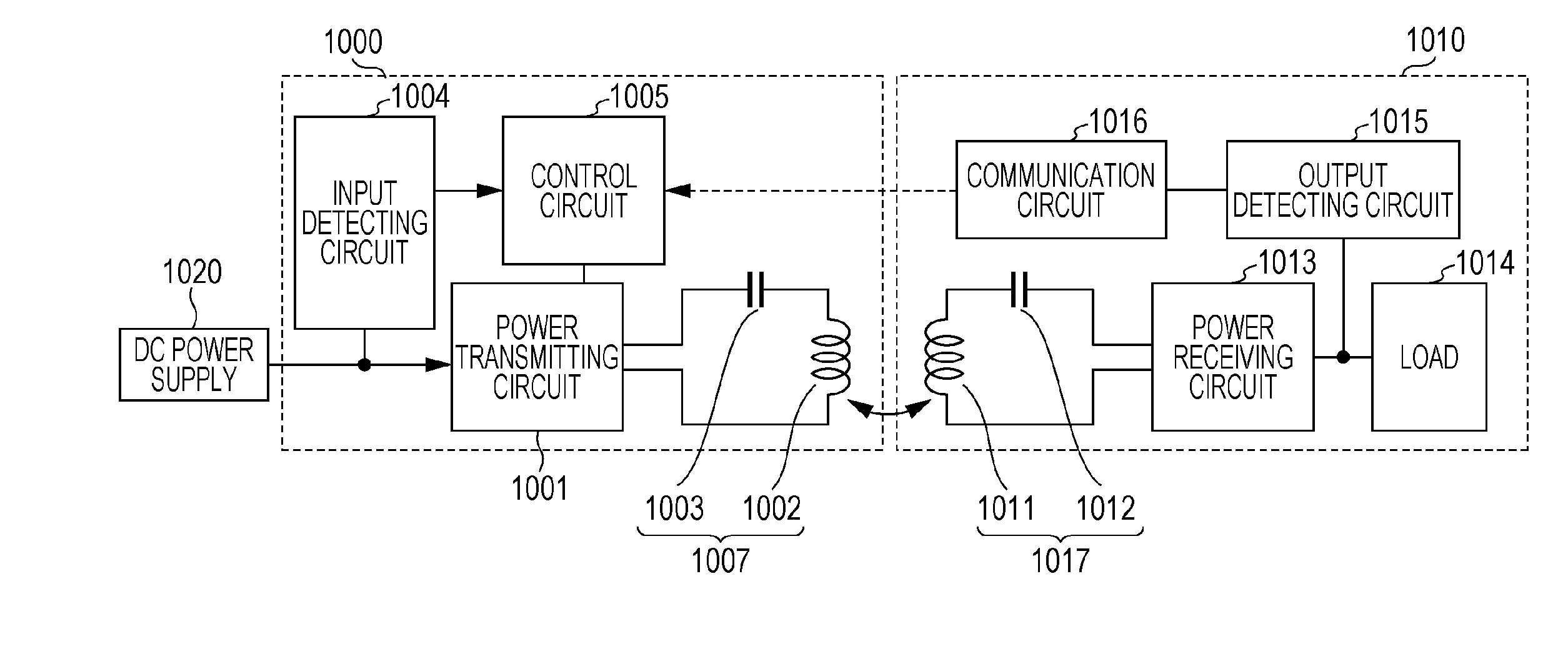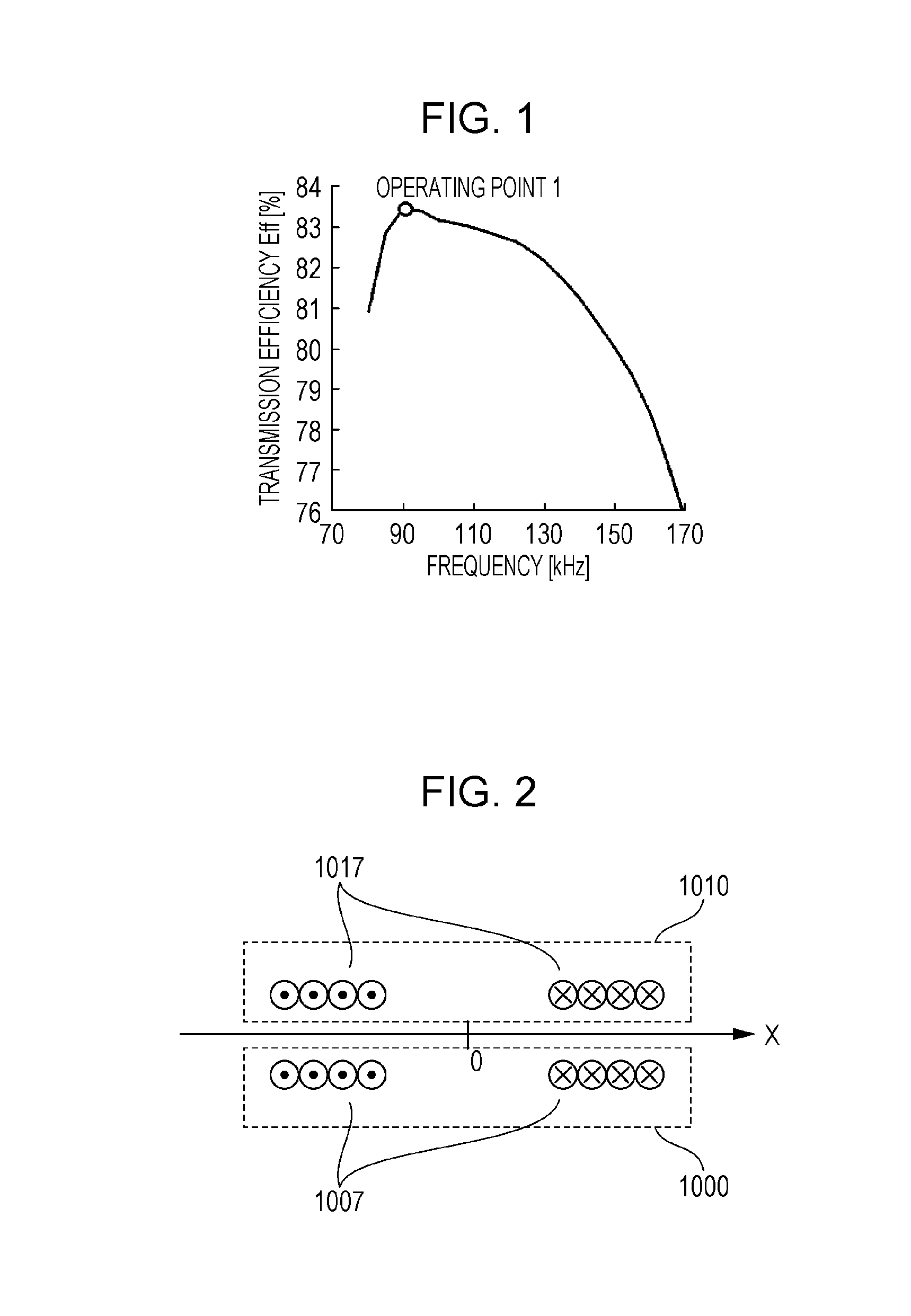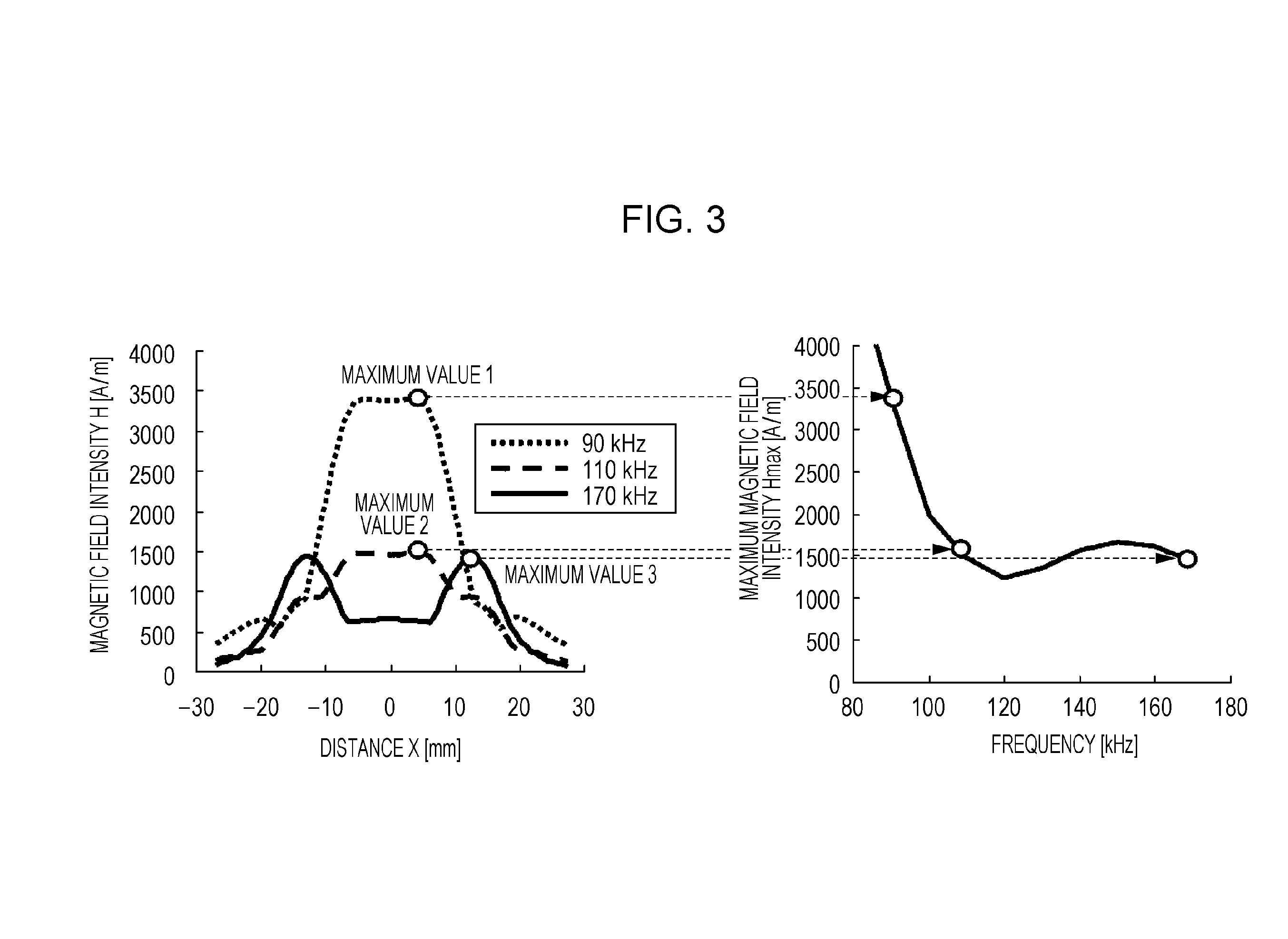Wireless power transmission system and power transmitting device
- Summary
- Abstract
- Description
- Claims
- Application Information
AI Technical Summary
Benefits of technology
Problems solved by technology
Method used
Image
Examples
first embodiment
[0051]FIG. 4 is a block diagram illustrating configuration of a wireless power transmission system according to a first embodiment of the present disclosure. The wireless power transmission system includes a power transmitting device 1000 and a power receiving device 1010. In this system, electric power is transmitted from the power transmitting device 1000 to the power receiving device 1010 in a noncontact manner. The power transmitting device 1000 includes a power transmitting circuit 1001 that converts direct current (DC) power input from a DC power supply 1020 to AC power and that outputs the converted AC power, and a power transmitting antenna 1007 that transmits the AC power output from the power transmitting circuit 1001 in a noncontact manner. The power transmitting antenna 1007 includes a power transmitting coil 1002 and a resonance capacitor 1003 that is connected between the power transmitting circuit 1001 and the power transmitting coil 1002. The power receiving device 1...
second embodiment
[0095]FIG. 9 is a block diagram illustrating detailed configuration of a power transmitting device 1000 according to a second embodiment of the present disclosure. In FIG. 9, components in common or corresponding to those in FIG. 5 are denoted by the same reference numerals, and description of common matters is not repeated.
[0096]In this embodiment, the control circuit 1005 controls an output time ratio of the voltage, which is output from the power transmitting circuit 1001, such that the voltage output from the power receiving circuit 1013 is maintained at constant. The control circuit 1005 in this embodiment further includes an output time ratio control unit 1033 and an optimum output time ratio detecting unit 1034. The output time ratio control unit 1033 controls the output time ratio of the voltage, which is output from the power transmitting circuit 1001. The DC voltage output from the power receiving circuit 1013 can be changed by changing the output time ratio of the output ...
third embodiment
[0112]FIG. 15 is a block diagram illustrating detailed configuration of a power transmitting device 1000 according to a third embodiment of the present disclosure. In FIG. 15, components in common or corresponding to those in FIG. 9 are denoted by the same reference numerals, and description of common matters is not repeated.
[0113]The power transmitting device 1000 in this embodiment further includes an input voltage conversion circuit 1006 connected between the DC power supply 1020 and the power transmitting circuit 1001. The input voltage conversion circuit 1006 can change the magnitude of the DC voltage supplied to the power transmitting circuit 1001. The control circuit 1005 further includes an input voltage control unit 1035 that controls the voltage input from the input voltage conversion circuit 1006 to the power transmitting circuit 1001 (hereinafter referred to as the “input voltage”), and an optimum input voltage detecting unit 1036 that decides an optimum input voltage.
[0...
PUM
 Login to View More
Login to View More Abstract
Description
Claims
Application Information
 Login to View More
Login to View More - R&D
- Intellectual Property
- Life Sciences
- Materials
- Tech Scout
- Unparalleled Data Quality
- Higher Quality Content
- 60% Fewer Hallucinations
Browse by: Latest US Patents, China's latest patents, Technical Efficacy Thesaurus, Application Domain, Technology Topic, Popular Technical Reports.
© 2025 PatSnap. All rights reserved.Legal|Privacy policy|Modern Slavery Act Transparency Statement|Sitemap|About US| Contact US: help@patsnap.com



